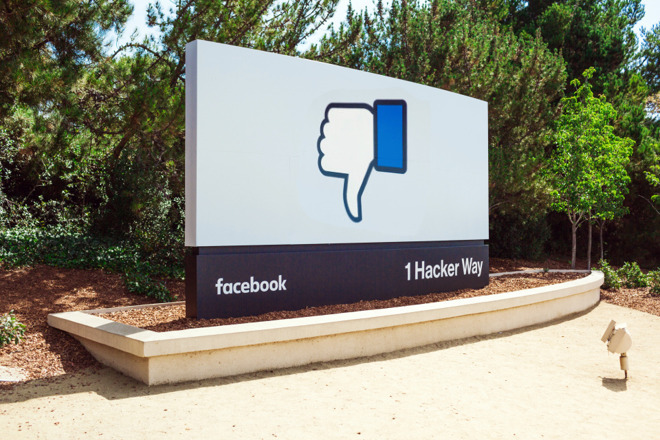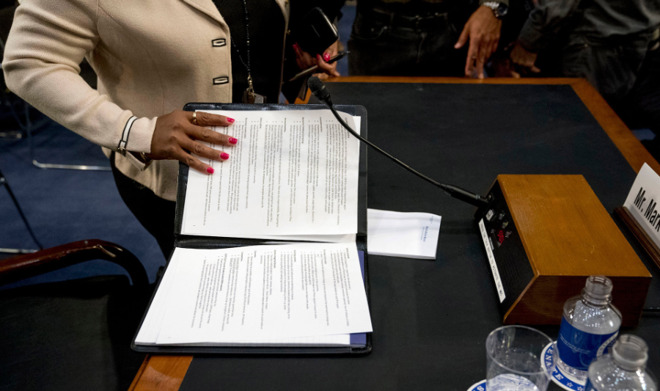Apple, Google have apologized for privacy issues but Facebook is just sorry they got caught
 Everyone apologizes, but no one actually says sorry. The very word apology has even regularly been turned into an insult, such as when you hear politicians saying “We apologize if anyone was affected.”
Everyone apologizes, but no one actually says sorry. The very word apology has even regularly been turned into an insult, such as when you hear politicians saying “We apologize if anyone was affected.”
Facebook isn’t even doing that. We are the people whose private data is keeping them in business. We are the people whose data it wanted to mine, and it was completely happy to flout contractual agreements in order to get it. We are not the people who get an apology.
Maybe Facebook said something apologetic to Apple in order to get its apps back, but it hasn’t apologized to anybody publicly —and its statements don’t exactly show a lot of remorse.
Apple and Google have done a bit better than that. Apple didn’t actually say the word sorry for the rather huge Group FaceTime bug but it has apologized and it did so reasonably well.
We sincerely apologize to our customers who were affected and all who were concerned about this security issue. We appreciate everyone’s patience as we complete this process.
You might or might not believe them, you might or might not figure that it’s a public relations exercise. At least Apple said something and didn’t try to qualify it with an “if.”
Apple’s FaceTime flub shouldn’t have been as high-profile as it was. When you glanced at your phone, it is true that there was a possibility that the person calling you was already listening in on your room and that was bad. Still, claims of people being able to listen forever or even see you too were exaggerated and so in practice, just about the worst possible scenario could be that they got to hear you groan —and wonder aloud what that freaking guy wants now.
In comparison, Facebook and Google were deliberately, purposely mining for data. Yet Google has at least half-heartedly apologized for it.
This was a mistake, and we apologize.
This may have been a mistake, but it was hardly an accident. Nobody at Google tripped and accidentally typed a command that released the Screenwise Meter app to people. And then, nobody at Google then stopped this app until what it was doing was reported in the press.
Still, Google earns half a point here because as well as apologizing, it did switch off this app before Apple forced it to.
Apple then forced it to, just to make certain, and this was done by Google having its enterprise developer certificates revoked. These were specifically enterprise developer certificates rather than the regular ones you need to publish apps on the App Store. Consequently, no public Google app was affected but all internal ones were.
That’s what happened at Facebook first, except that Facebook didn’t switch off anything voluntarily. Apple closed down all of Facebook’s internal apps, and it was only then that the social media company did anything to put things right.
Except, Facebook took action to put things right for itself and no one else. Again, no public apps were affected so unless you knew it was happening, you couldn’t tell. Your Facebook, Instagram and Messenger iOS apps continued to work on your iPhone and iPad without a hiccup.
It looks like you’re never going to be able to tell, either. Apple has restored Facebook’s developer certificate —and Google’s too — so all is well. For Facebook. And, the rampant news cycle has churned on.
We have all become cynical about apologies. We’ve come to see them as meaningless words issued as PR or as required by courts. So even if this were Facebook’s first offense, we would struggle to believe that any apology was genuine.
As it is far from their first time, there’s not a chance we would believe it. There is no circumstance now in which we could end up thinking that Mark Zuckerberg is a stand-up guy for how he admits to his company’s actions.
Yet we’d still like to try.

These are unused anti-Apple notes that Mark Zuckerberg brought to Congress when he was supposed to be explaining his own company’s actions (Source: AP Photo)
There has been no public apology from Facebook in any way. There has been no public comment beyond tweets saying that it’s been handled. The only thing there appears to have been is an internal Facebook memo to its staff, and that one is so very far away from being contrite.
Business Insider got this memo and Techcrunch, which originally broke this story, has ripped it apart.
In short, the Facebook memo is telling its staff that the company and its app did nothing wrong. It even pulls off that kind of politicians’ apology tone. “Apple’s view is that we violated their terms by sideloading this app,” says the memo, “and they decide the rules for their platform.”
Translation: we’re completely in the right but Apple took their ball away.
There is one conciliatory note in that memo. “Our relationship with Apple is really important,” wrote the company. “We wouldn’t put that relationship at any risk intentionally.”
Remember that this memo is not public, it was written solely for Facebook’s own staff. And it’s telling them that Facebook would not intentionally endanger its relationship with Apple —but all the staff can see the same things as we can. They can see Facebook knew it was breaking the rules of its agreement, they can see that Facebook intentionally did all this.
So privately, Facebook is treating its staff as idiots. Publicly, Facebook is treating all of us as idiots – just without actually saying anything.
It is now extremely unlikely that Facebook will issue any kind of public apology. Given what Facebook did now and has done before, given how it’s acting internally and ignoring the rest of us, there is just one thing that’s more likely than our seeing an apology of any kind.
Facebook will undoubtedly continue to find ways to mine our personal data for profit. It is the reason they exist. If they have to bend rules that other companies have put into place, just south of shattering those rules, then they will do so and have demonstrated this over, and over.
If you follow technology or security news, then you now know that Facebook cannot be trusted. And yet the company is fine with that because there will always be other users to exploit.
[“source=appleinsider”]